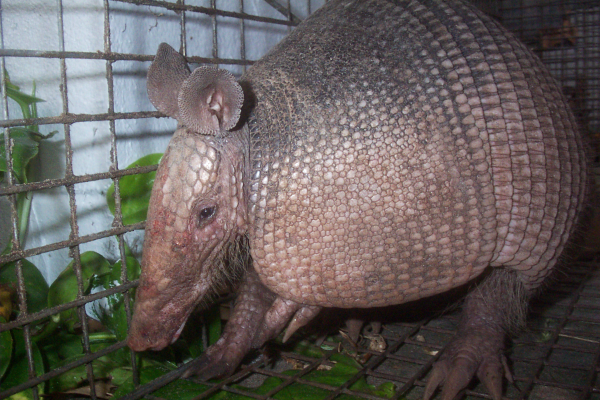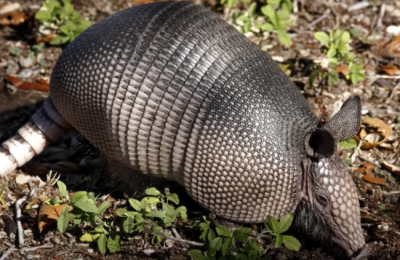Do armadillos spread diseases?: A helpful guide

Armadillos may look harmless or even funny, but they are proven to cause many diseases. Many are not aware that they can get seriously ill by merely touching or encountering an armadillo.
This article talks about armadillos and the diseases they carry in detail.
How armadillos spread diseases
Armadillos are generally harmless and timid creatures. They don’t usually bite or sting people. However, they are common yard pests, so they often get caught in traps.
Besides, children and pets may come in contact with armadillos while playing. A lot of people are infected while releasing trapped armadillos into the wild. It’s important to be careful so that you don’t come in contact with an armadillo.
Armadillo diseases
Armadillos have a fairly low body temperature, so they don’t carry many diseases. However, they are vectors of the following serious illnesses:
Hansen’s disease or leprosy
Armadillos are some of the only animals to be carriers of leprosy with such a low body temperature. According to the US Center for Disease Control and Prevention, these mammals are the only carriers of the disease that can cause serious damage to the skin and nerves.
The bacteria causing leprosy Mycobacterium leprae infects armadillos easily, which can then pass to humans through contact.
Prevention
To prevent catching leprosy from armadillos, you should take the following steps
- Be careful not to touch an armadillo under any circumstance.
- These animals should not be kept as pets or brought in for entertainment.
- Serving it as food (yes, some people have done that!) is an absolute no-no.
If you see an armadillo with signs of disfigured scales or body, arrange to have it removed from your property.
Rabies
Rabies is commonly associated with other wild pests, but armadillos may have this disease too. Rabies is not as common in armadillos but a small number of them do carry it.
Armadillos usually avoid people and have a natural fear of humans. But if you see an armadillo that is unusually active during the daytime, then it may possibly carry rabies.
Prevention
To prevent getting rabies from armadillos, do the following:
- Notice their behavior carefully and do not approach them.
- If an armadillo scratches or bites you, it’s best to visit your nearest clinic and get a rabies shot.
- Pay attention to any change in behavior in pets, especially if you are a dog owner.
- Keep children away from armadillos
Tapeworms
Tapeworms are parasites that can exist in an animal’s body. These worms cause many diseases in humans and pets. Armadillos that have tapeworms can spread it to other animals and humans in many ways. Most commonly, it is through their feces.
Animals and humans exposed to the feces of an armadillo can get tapeworms from it. They remain there as eggs, which hatch once they reach the intestine of any animal. Tapeworms then suck in all the nutrients from the food you eat. Your pets may further transmit the disease as tapeworms can spread to humans through their feces.
Prevention
- To prevent getting tapeworms, you should take these steps:
- Regularly monitor your health as well as your pets’.
- If you see any signs of intestinal problems or sudden weight loss, you must visit a doctor immediately.
You should be careful while cleaning the litter boxes and feces of your pets. Always wash your hands and wearing gloves is very important.
Salmonella
Salmonella is a type of bacteria that spreads through contaminated water or food sources. Salmonella is carried by many animals, and the armadillo is no exception. If your garden vegetables or water sources get contaminated by an armadillo, there is a high risk of you getting salmonella by eating or drinking those.
Salmonella can be quite deadly; it causes serious problems like vomiting, diarrhea, typhoid and stomach-aches. Those with weak immune systems are at a high risk, such as children and senior citizens.
Prevention
- These are the steps to take to avoid getting salmonella from armadillos:
- Wash your fruits and vegetables really well before consuming them.
- It is also a good practice to boil and filter your water.
- Make sure that your water pipes are intact underground as armadillos tend to dig.
- Don’t let children or pets eat any half-eaten fruits or vegetables from the garden.
Armadillos are important animals for the balance of the environment and for our ecosystem. However, we should be careful when dealing with these animals. While killing them is not a solution, we should proceed with caution so that we can coexist with nature peacefully.

